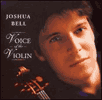Reflections on Music for November
This November is a month of beauty, as the autumn leaves retain their brilliance well beyond the passing of October and into the edge of winter. The brevity of the days seems an aesthetic oversight; we should be given more chances to revel in fall's glowing colors.
With these brief days and longer nights, November remains a time of reflection, a month when we honor our veterans, commemorate our dead, perhaps even recall that we do so because on the 11th hour of the 11th day of this 11th month in 1918, a war that cost the lives of a generation of men drew to a close. The survivors of that war have dwindled to a few, and yet we dare not forget the price that they -- and indeed the world -- paid in that terrible time.
In several faith traditions, the month is marked by the feasts of All Saints (November 1st) and All Souls (November 2nd), the latter being also known as Dia de los Muertos, a day to acknowledge those who have passed from this life.
With the latter feast in mind, I could think of no better way to spend November 2nd than to hear the Schola Cantorum at St. Matthew's Cathedral perform Faure's Requiem. Three years back, in another bittersweet November, I had heard this same fine ensemble perform "Take Him, Earth, for Cherishing" by Howells, and then "In Paradisum" from Faure, both in special commemoration of President Kennedy.
This past Thursday, the strains of Faure soared through the cathedral again, this time in memory of the family and friends of the parish community.
"May you be taken to paradise by angels..."
The organist Paul Hardy and members of the University of Maryland Orchestra provided accompaniment, conducted by William Culverhouse, and the soloists were the soprano Ellen Kliman and the bass Thomas Stork. In my mind, Mr. Stork will ever be linked to the musical themes of death and resurrection. Quite apart from his solo in the Requiem, I will not soon forget his joyous, heartfelt performance earlier this year of Handel's "The Trumpet Shall Sound" during the Easter season -- a work markedly different in energy from the Requiem, but very much an answer to the pleas raised in Faure's text.
 In no less reflective of vein is this season's offering from the great violinist Joshua Bell. Voice of the Violin is deliberately named, for it is comprised of transcriptions in which, with a single exception, Bell's violin takes up the part of the human voice.
In no less reflective of vein is this season's offering from the great violinist Joshua Bell. Voice of the Violin is deliberately named, for it is comprised of transcriptions in which, with a single exception, Bell's violin takes up the part of the human voice.And the effect is entrancing. Familiar vocal works gain new, yet more haunting beauty under Bell's touch. Imagine, if you will, "Song to the Moon" from Rusalka with a violin soloist, rather than the soprano voice, or "Un furtiva lagrima" from L'Elisir d'Amore in the same fashion. In the latter work, the playing is as expressive as any tenor, perhaps more so.
But there's one more surprise. In the final track, he is joined by soprano Anna Netrebko on Richard Strauss's "Morgen!" It is a beautiful marriage of musicianship, an affirmation of what came before.
Right about now you're wondering if it isn't a stretch to link young Mr. Bell to this decidedly autumnal mood I've taken up in this column. In fact the exquisite melancholy and delicate beauty of his playing speak eloquently to us in this bittersweet season. Fall may leave us contemplating bare trees and an uncertain future, but also the precious nature of life.




0 Comments:
Links to this post:
Create a Link
<< Home